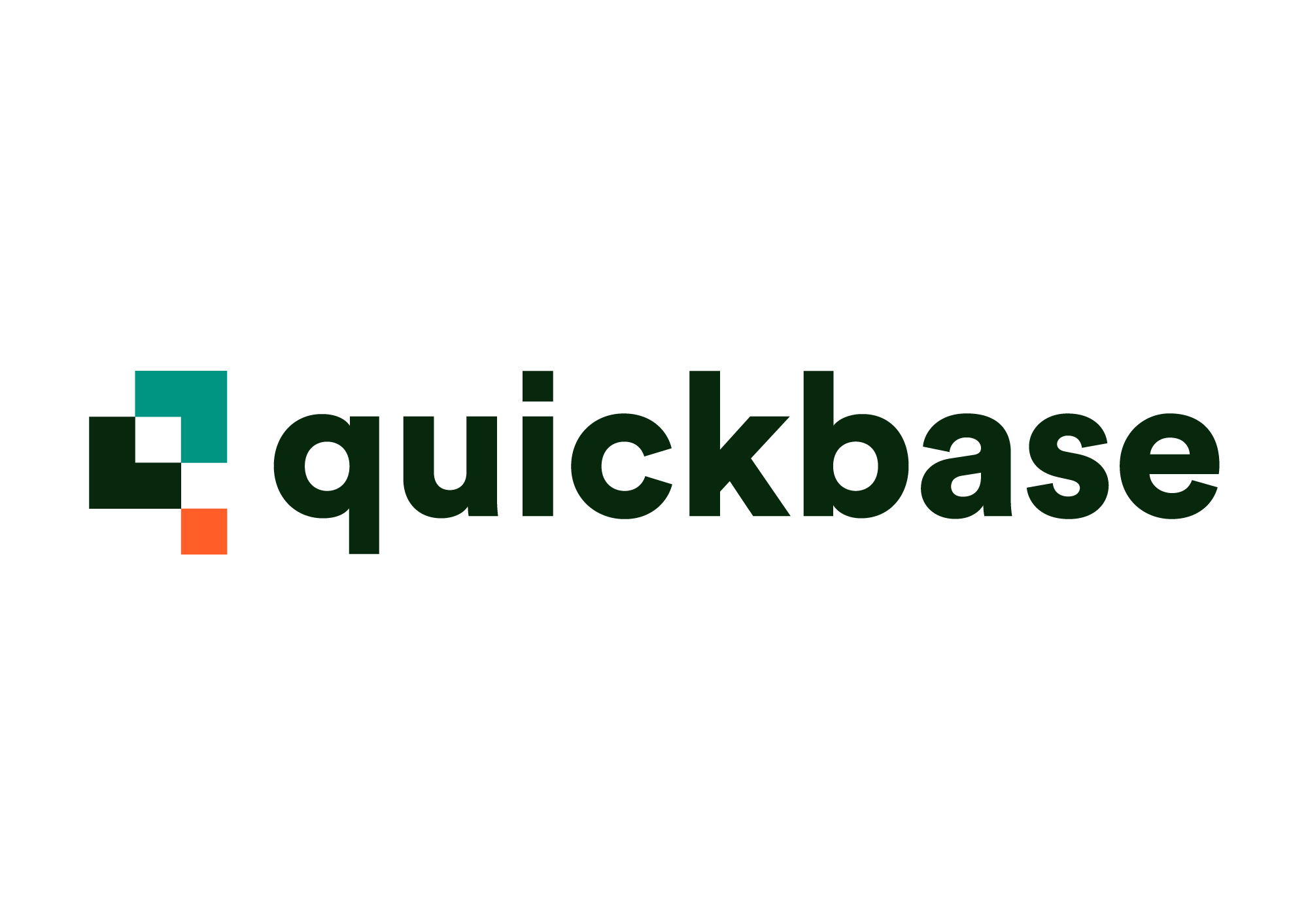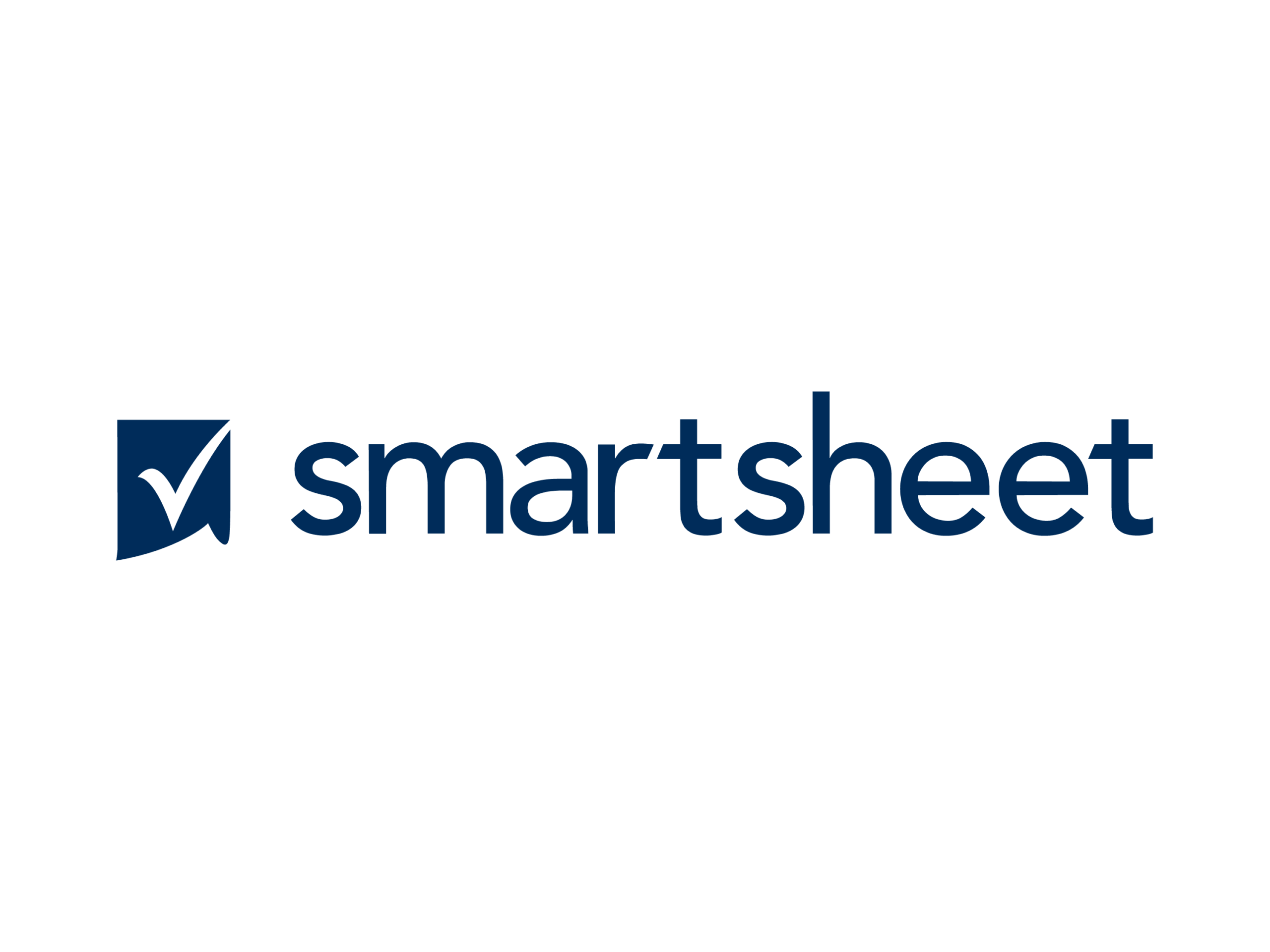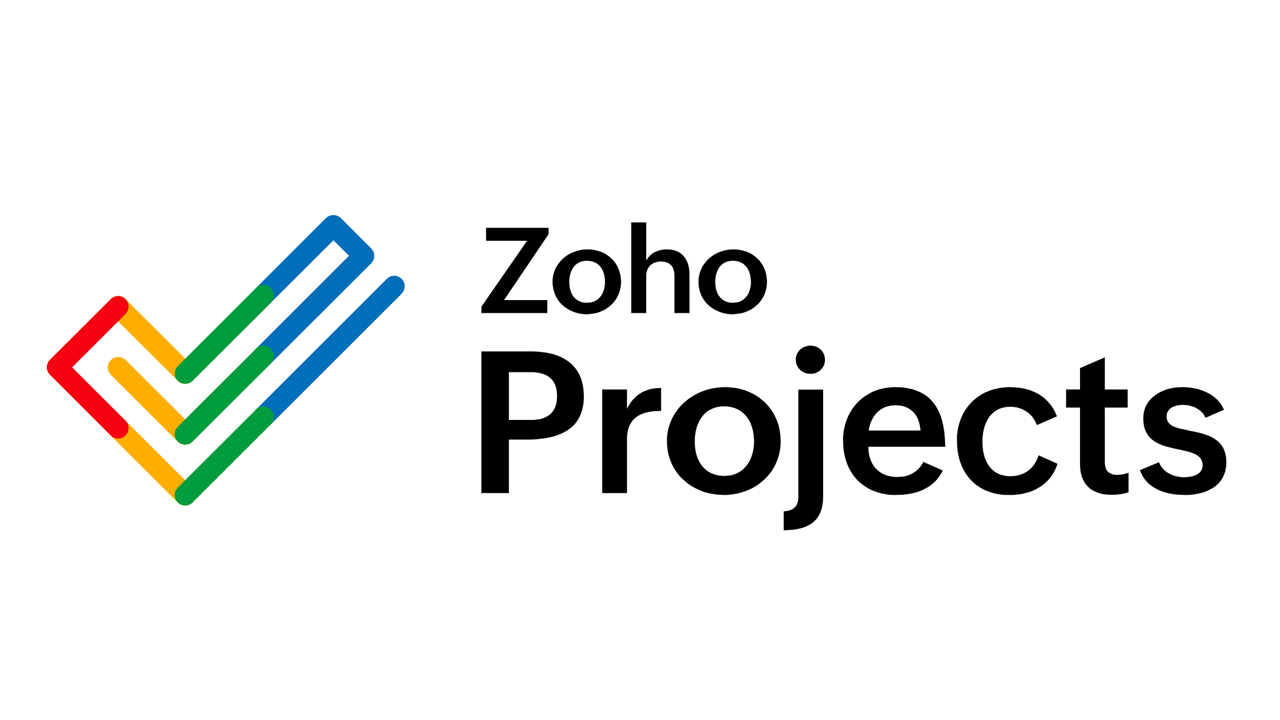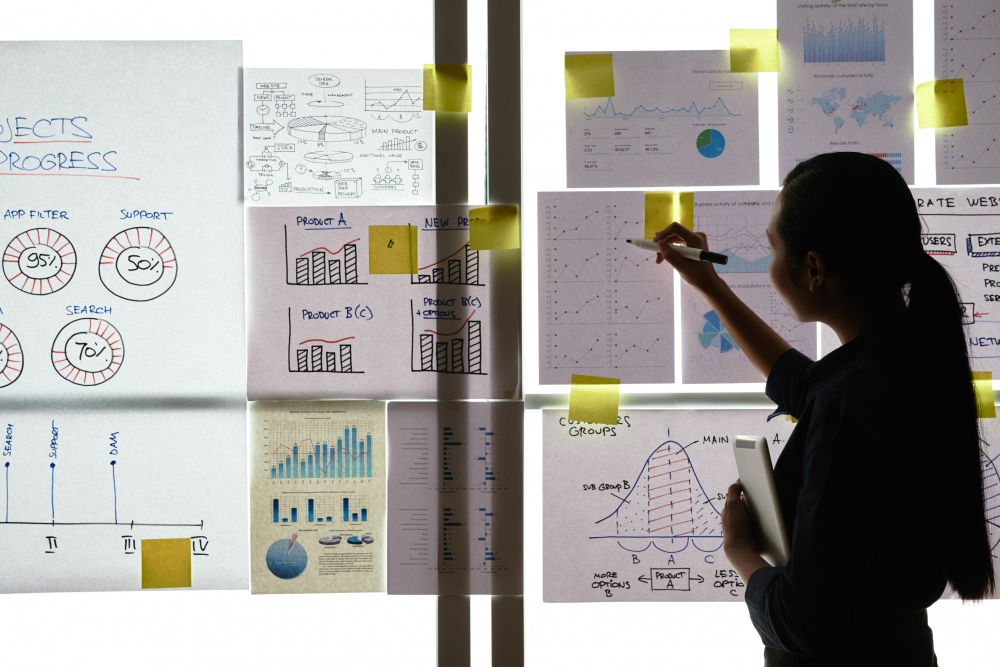How Can AI Transform Project Management for Modern Teams?

Project management has evolved dramatically over the past decade, transitioning from traditional methodologies to dynamic, technology-driven approaches. Today, artificial intelligence stands at the forefront of this transformation, fundamentally changing how teams plan, execute, and deliver projects. As organizations face increasing complexity, tighter deadlines, and higher stakeholder expectations, AI-powered project management tools offer unprecedented capabilities to optimize workflows, predict risks, and enhance decision-making. This article explores how AI is revolutionizing project management and how leading platforms are integrating intelligent features to empower project managers and their teams.
Table of Contents
- Quick Summary
- What Is AI for Project Management and Why Does It Matter?
- How Does AI Enhance Project Planning and Scheduling?
- What Role Does AI Play in Risk Management and Prediction?
- How Can AI Improve Resource Allocation and Team Productivity?
- How Do Leading Platforms Integrate AI into Project Management?
- Summing up
- Frequently Asked Questions
- Why Partner with Solution4Guru for AI-Powered Project Management?
Quick Summary
Artificial intelligence is transforming project management by automating routine tasks, providing predictive insights, and enabling data-driven decision-making. This comprehensive guide covers:
- AI fundamentals: Understanding what AI means for project management and its core applications
- Planning and scheduling: How AI optimizes timelines, identifies dependencies, and improves accuracy
- Risk management: Predictive analytics that identify potential issues before they impact projects
- Resource optimization: Intelligent allocation of team members, budgets, and materials
- Platform capabilities: How Quickbase, Smartsheet, and Zoho leverage AI to enhance project outcomes
- Implementation strategies: Practical approaches to adopting AI-powered project management
- Future trends: Emerging AI capabilities reshaping the project management landscape
Whether you’re a seasoned project manager or exploring AI integration for the first time, this guide provides actionable insights to leverage artificial intelligence for superior project outcomes.
What Is AI for Project Management and Why Does It Matter?
Artificial intelligence for project management refers to the application of machine learning algorithms, natural language processing, predictive analytics, and automation technologies to enhance how projects are planned, executed, monitored, and controlled. Unlike traditional project management software that simply organizes information, AI-powered systems actively analyze data, identify patterns, generate insights, and make intelligent recommendations that improve project outcomes.
Understanding the Core Components of AI in Project Management
AI in project management encompasses several interconnected technologies working together to augment human capabilities:
Machine Learning: These algorithms analyze historical project data to identify patterns, correlations, and trends that humans might miss. Consequently, machine learning models can predict project durations, resource requirements, and potential bottlenecks based on similar past projects. Over time, these systems become more accurate as they process additional data.
Natural Language Processing (NLP): NLP enables systems to understand and process human language in project communications, documentation, and requirements. Therefore, AI can extract key information from emails, meeting notes, and project documents, automatically categorizing tasks, identifying action items, and flagging potential issues mentioned in team conversations.
Predictive Analytics: By examining historical data and current project metrics, predictive analytics forecast future outcomes with remarkable accuracy. Moreover, these systems can predict project completion dates, budget overruns, resource conflicts, and quality issues before they materialize, enabling proactive intervention.
Intelligent Automation: AI-powered automation goes beyond simple rule-based workflows by making contextual decisions about task assignments, priority adjustments, and workflow routing. Additionally, intelligent automation handles routine project management activities, freeing project managers to focus on strategic decisions and stakeholder relationships.
Computer Vision: Advanced AI systems can analyze visual data from project sites, design documents, and progress reports. For instance, construction project management platforms use computer vision to assess completion percentages from site photographs, comparing them against planned schedules.
The Business Case for AI in Project Management
Organizations increasingly recognize that traditional project management approaches struggle to address contemporary challenges. Projects have become more complex, involving distributed teams across multiple time zones, intricate dependencies, and rapidly changing requirements. Furthermore, the volume of project data has grown exponentially, making manual analysis impractical.
AI addresses these challenges by:
Improving Accuracy: AI systems analyze vast amounts of data to generate more accurate estimates for timelines, budgets, and resource requirements. Research indicates that AI-powered project estimation reduces variance by 30-40% compared to traditional methods.
Enhancing Decision-Making: Project managers face countless decisions daily, from task prioritization to resource allocation. AI provides data-driven recommendations based on comprehensive analysis rather than intuition alone, leading to more consistent and optimal decisions.
Increasing Efficiency: By automating routine activities such as status reporting, schedule updates, and risk assessments, AI allows project managers to dedicate more time to activities that truly require human judgment and creativity. Organizations typically report 25-35% time savings in administrative project management tasks after implementing AI.
Reducing Risk: Predictive analytics identify potential problems early when they’re easier and less costly to address. Moreover, AI continuously monitors projects for warning signs that human reviewers might overlook, significantly reducing project failure rates.
Scaling Expertise: AI democratizes project management best practices by embedding expert knowledge into systems accessible to all team members. Consequently, less experienced project managers can benefit from insights that would normally require years of experience to develop.
The Evolution of AI in Project Management
The journey of AI in project management has progressed through distinct phases. Initially, project management software focused on basic task tracking and scheduling. Subsequently, systems incorporated data visualization and reporting capabilities. Today, we’re witnessing the emergence of truly intelligent systems that learn from data, adapt to context, and provide proactive guidance.
Leading platforms like Quickbase, Smartsheet, and Zoho are at the forefront of this evolution, integrating sophisticated AI capabilities that transform how organizations manage projects. These platforms recognize that AI isn’t about replacing project managers but rather augmenting their capabilities, enabling them to manage more complex projects more effectively.
How Does AI Enhance Project Planning and Scheduling?

Project planning and scheduling form the foundation of successful project execution. However, traditional planning approaches often struggle with accuracy, particularly for complex projects with numerous dependencies and uncertainties. AI revolutionizes this critical phase through multiple mechanisms.
Intelligent Task Breakdown and Estimation
Breaking down projects into manageable tasks and estimating their duration represents one of the most challenging aspects of project planning. AI systems excel at this by analyzing historical data from similar projects to suggest optimal task structures and realistic duration estimates.
Historical Pattern Recognition: AI algorithms examine thousands of completed projects to identify patterns in how work is structured. For instance, if planning a software development project, AI can recommend typical tasks based on successful similar projects, ensuring comprehensive coverage without omissions.
Contextual Estimation: Rather than applying generic formulas, AI considers project-specific factors such as team experience, technology choices, and organizational constraints. Therefore, estimates become more accurate and relevant to actual circumstances. Platforms like Smartsheet leverage AI to analyze your organization’s historical performance data, providing estimates calibrated to your team’s actual velocity and productivity patterns.
Complexity Assessment: AI evaluates task complexity by analyzing multiple factors including technical difficulty, uncertainty levels, and interdependencies. Consequently, the system can flag tasks requiring additional planning attention or expert resources.
Dependency Mapping and Critical Path Optimization
Understanding task dependencies and identifying critical paths proves essential for effective scheduling. AI enhances these activities through sophisticated analysis capabilities.
Automated Dependency Detection: AI systems analyze task descriptions, relationships, and historical patterns to automatically suggest dependencies that project managers might overlook. Moreover, these systems can identify implicit dependencies not explicitly documented, preventing scheduling conflicts.
Dynamic Critical Path Analysis: Traditional critical path analysis provides static snapshots. In contrast, AI continuously recalculates critical paths as project conditions change, alerting project managers when tasks move onto or off the critical path. Additionally, AI suggests schedule adjustments to optimize overall project duration.
Resource-Constrained Scheduling: AI considers resource availability, skills, and capacity when generating schedules. Therefore, proposed schedules are not just theoretically optimal but practically achievable given actual resource constraints. Zoho Projects employs AI to balance workloads across team members while respecting dependencies and deadlines.
Schedule Optimization and What-If Analysis
AI enables sophisticated scenario planning that helps project managers make informed decisions about schedule trade-offs.
Multi-Objective Optimization: AI can simultaneously optimize for multiple objectives such as shortest duration, lowest cost, and minimal risk. The system presents Pareto-optimal solutions allowing project managers to choose the best balance for their specific priorities.
Real-Time Schedule Adjustment: When delays or changes occur, AI instantly recalculates optimal schedules considering all constraints and dependencies. Furthermore, the system can automatically propose mitigation strategies to maintain critical milestones.
Scenario Simulation: Project managers can ask “what-if” questions such as “What happens if we add two developers to the critical path?” or “How does delaying this milestone impact the overall schedule?” AI simulates these scenarios, providing concrete answers based on comprehensive data analysis.
Adaptive Planning for Agile Environments
AI proves particularly valuable in agile project management contexts where plans must adapt continuously to changing requirements and priorities.
Sprint Planning Assistance: AI analyzes team velocity, story complexity, and historical sprint data to recommend optimal story allocations for upcoming sprints. Moreover, the system identifies potentially overloaded or underutilized team members, enabling better sprint planning.
Backlog Prioritization: By analyzing business value, dependencies, risks, and effort estimates, AI can suggest optimal backlog prioritization. Quickbase incorporates AI-driven prioritization that considers multiple stakeholder perspectives and strategic alignment.
Continuous Replanning: As agile projects progress, AI continuously updates plans based on actual progress, changing priorities, and new information. Therefore, teams always work from current, optimized plans rather than outdated initial plans.
What Role Does AI Play in Risk Management and Prediction?
Risk management traditionally relies on project managers’ experience and judgment to identify and mitigate potential problems. While valuable, this approach has limitations in comprehensiveness and consistency. AI transforms risk management through systematic, data-driven approaches that identify risks earlier and more accurately.
Predictive Risk Identification
AI systems excel at detecting warning signs and patterns that indicate potential risks before they fully materialize.
Early Warning Systems: By continuously monitoring project metrics such as velocity trends, budget burn rates, and task completion patterns, AI identifies deviations from expected patterns. Subsequently, the system alerts project managers to investigate potential issues while they’re still manageable.
Sentiment Analysis: AI analyzes team communications including emails, chat messages, and meeting notes to detect concerning sentiment patterns. For example, increasing negativity, confusion, or conflict indicators suggest potential team dynamics issues requiring attention. Smartsheet integrates communication analysis to flag potential collaboration problems.
External Risk Monitoring: Advanced AI systems monitor external factors such as market conditions, regulatory changes, and supplier issues that could impact projects. Therefore, project managers gain visibility into risks originating outside their immediate control.
Probability and Impact Assessment
Once risks are identified, accurate assessment of their probability and potential impact proves crucial for prioritization. AI enhances these assessments through comprehensive data analysis.
Historical Probability Calculation: AI analyzes how frequently similar risks materialized in past projects under comparable conditions. Consequently, probability assessments become more objective and data-driven rather than relying solely on subjective judgment.
Impact Simulation: AI models simulate risk scenarios to quantify their potential impact on project timelines, budgets, and deliverables. Moreover, these simulations consider cascading effects and interdependencies that simple linear analysis might miss.
Risk Scoring and Prioritization: By combining probability and impact assessments with additional factors such as detection difficulty and mitigation costs, AI generates comprehensive risk scores. Therefore, project managers can focus attention on the most critical risks first.
Proactive Mitigation Recommendations
Identifying risks is valuable, but AI goes further by suggesting specific mitigation strategies based on what proved effective in similar situations.
Best Practice Recommendations: AI systems contain knowledge from thousands of projects, enabling them to recommend mitigation strategies that worked effectively for similar risks previously. Additionally, these recommendations are customized to your project’s specific context and constraints.
Resource Reallocation Suggestions: When risks threaten timelines or deliverables, AI analyzes resource availability and suggests optimal reallocations to address problems. Zoho Projects employs AI to recommend which team members should be reassigned to address critical risks based on their skills and current workload.
Contingency Planning: AI helps develop contingency plans by identifying alternative approaches, fallback options, and buffer strategies. Furthermore, the system can calculate optimal contingency reserves based on risk exposure levels.
Continuous Risk Monitoring
Risk management isn’t a one-time activity but an ongoing process throughout project lifecycles. AI provides continuous monitoring capabilities that would be impractical manually.
Automated Risk Tracking: AI continuously evaluates risk status, updating probabilities and impacts as project conditions change. Consequently, risk registers remain current without requiring constant manual updates.
Trend Analysis: By tracking risk metrics over time, AI identifies trends that indicate improving or deteriorating risk profiles. Moreover, the system can predict when current trends will push risk levels beyond acceptable thresholds.
Risk Interdependency Analysis: AI maps relationships between different risks, identifying how one risk might trigger or amplify others. Therefore, mitigation strategies can address root causes rather than just symptoms.
How Can AI Improve Resource Allocation and Team Productivity?

Optimal resource allocation represents one of project management’s most challenging aspects, particularly in organizations managing multiple concurrent projects. AI brings sophisticated optimization capabilities that significantly improve how resources are assigned and utilized.
Intelligent Resource Matching
Matching the right people to the right tasks at the right time requires considering numerous factors including skills, availability, workload, preferences, and development goals. AI handles this complexity effectively.
Skills-Based Assignment: AI maintains comprehensive profiles of team member skills, experience levels, and areas of expertise. When tasks arise, the system identifies optimal assignments based on skill requirements and proficiency levels. Moreover, AI can identify skill gaps requiring training or external resources.
Workload Balancing: AI monitors individual and team workload levels, preventing overallocation while identifying underutilized capacity. Quickbase uses AI to visualize workload distribution across teams, automatically flagging imbalances and suggesting reassignments to optimize utilization.
Learning and Development: AI can intentionally assign tasks that develop team members’ skills, balancing current productivity with long-term capability building. Therefore, resource allocation supports both immediate project needs and strategic workforce development.
Capacity Planning and Forecasting
Understanding future resource needs enables proactive planning rather than reactive scrambling. AI provides sophisticated capacity forecasting based on comprehensive analysis.
Demand Forecasting: By analyzing project pipelines, historical demand patterns, and organizational growth trends, AI predicts future resource requirements by role, skill, and time period. Consequently, organizations can plan hiring, training, and contractor engagement proactively.
Scenario-Based Planning: AI simulates different scenarios such as project delays, scope changes, or resource departures, showing their impact on capacity. Moreover, the system recommends strategies to maintain adequate capacity across different scenarios.
Cross-Project Optimization: When managing multiple projects, AI optimizes resource allocation across the entire portfolio rather than sub-optimizing individual projects. Smartsheet provides portfolio-level AI that balances resources considering all active and planned projects simultaneously.
Productivity Analysis and Enhancement
AI monitors productivity patterns to identify improvement opportunities and best practices that can be scaled across teams.
Performance Pattern Recognition: AI analyzes when individuals and teams are most productive, identifying patterns related to time of day, task types, collaboration modes, and work environments. Therefore, project managers can structure work to leverage these patterns.
Bottleneck Identification: By analyzing workflow data, AI pinpoints activities, processes, or individuals creating bottlenecks that slow overall progress. Furthermore, the system suggests specific interventions to eliminate these constraints.
Best Practice Dissemination: AI identifies techniques, tools, and approaches used by high-performing individuals or teams. Subsequently, these practices can be systematically shared and adopted across the organization to raise overall productivity levels.
Automated Task Distribution
AI can handle routine task distribution automatically, ensuring work flows smoothly without constant manual intervention.
Dynamic Work Assignment: As tasks become ready for work, AI automatically assigns them to appropriate team members based on current priorities, workloads, and skills. Moreover, the system notifies assignees and updates project schedules in real-time.
Priority Adjustment: When priorities shift, AI automatically reprioritizes task queues for each team member, ensuring everyone works on the most important activities. Zoho Projects features AI-powered priority engines that adapt to changing business needs.
Collaborative Optimization: For tasks requiring collaboration, AI identifies optimal team compositions considering complementary skills, past collaboration success, and communication patterns. Therefore, collaborative work is both effective and efficient.
How Do Leading Platforms Integrate AI into Project Management?
Understanding how specific platforms implement AI capabilities helps organizations evaluate options and maximize their technology investments. Three leading platforms – Quickbase, Smartsheet, and Zoho – exemplify different approaches to AI integration in project management.
Quickbase: AI-Powered Low-Code Platform
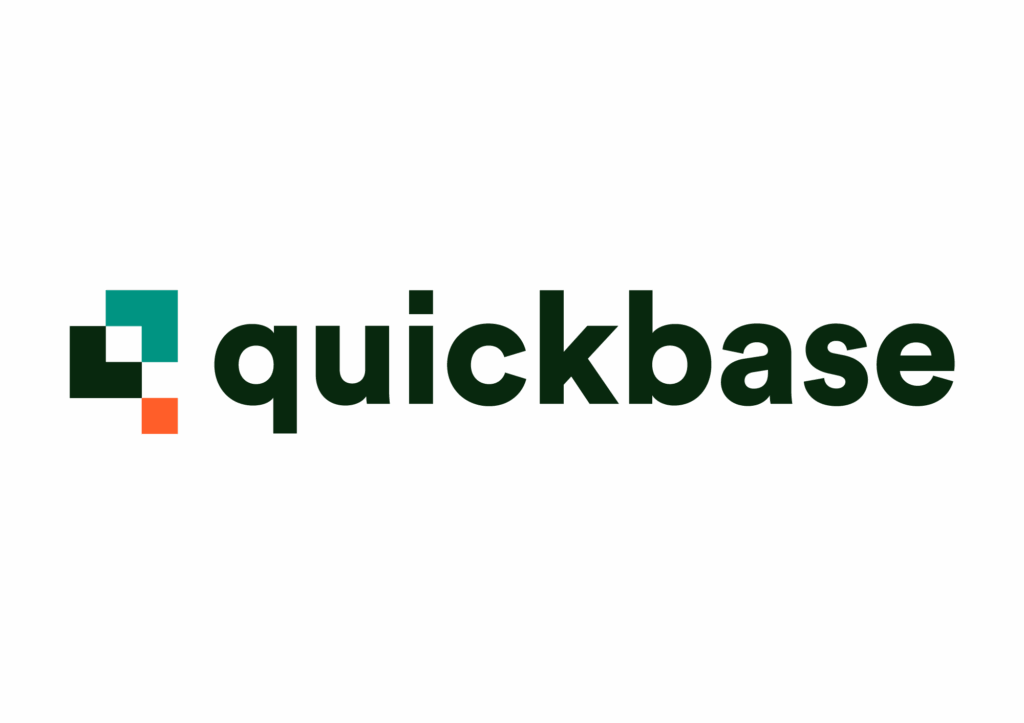
Quickbase differentiates itself by combining AI capabilities with low-code application development, enabling organizations to create customized project management solutions tailored to their specific needs while leveraging artificial intelligence throughout.
Intelligent Application Building: Quickbase employs AI to assist users in building custom project management applications. The platform analyzes requirements and organizational patterns to suggest optimal data structures, workflows, and user interfaces. Consequently, even users without extensive technical expertise can create sophisticated project management systems.
Automated Data Integration: Quickbase’s AI facilitates connections between project management applications and other enterprise systems. The platform intelligently maps fields, transforms data formats, and maintains synchronization across systems. Therefore, project data remains consistent across the organization without manual data entry or complex integration coding.
Predictive Pipelines: Quickbase uses machine learning to analyze project pipelines, predicting which opportunities will convert to active projects and forecasting resource demand. Moreover, the system identifies patterns in successful project characteristics, helping organizations qualify and prioritize opportunities more effectively.
Dynamic Dashboards: Rather than static dashboards requiring manual configuration, Quickbase employs AI to automatically surface the most relevant metrics, charts, and insights for each user based on their role, current activities, and historical usage patterns. Additionally, the system proactively alerts users to anomalies and significant changes requiring attention.
Workflow Intelligence: Quickbase’s AI monitors how workflows actually operate, comparing intended processes against actual execution. The platform identifies bottlenecks, unnecessary steps, and opportunities for automation. Furthermore, Quickbase can automatically implement certain optimizations or recommend changes to process owners.
Organizations leveraging Quickbase benefit from a platform that combines flexibility with intelligence. The low-code approach enables rapid customization to unique project management requirements, while AI ensures these customizations incorporate best practices and optimize continuously based on actual usage patterns.
Smartsheet: Collaborative Work Management with AI
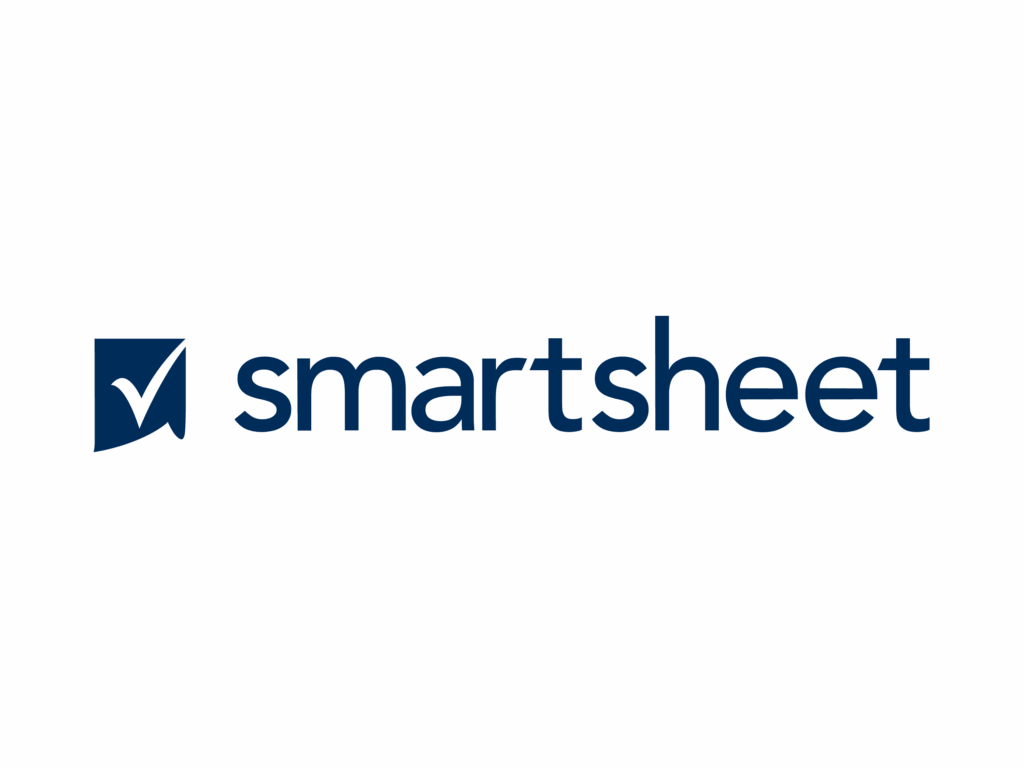
Smartsheet focuses on collaborative work management, using AI to enhance how teams plan, execute, track, and report on projects while maintaining the familiar spreadsheet-like interface that minimizes learning curves.
Resource Management AI:
Smartsheet’s resource management capabilities incorporate AI to optimize team allocation across multiple projects. The system analyzes skills, availability, workload, and historical performance to suggest optimal assignments. Moreover, Smartsheet provides what-if scenario analysis showing how different allocation strategies impact project timelines and team utilization.
Automated Status Collection:
Rather than requiring manual status updates from team members, Smartsheet’s AI analyzes activity patterns, task completion rates, and communication to generate status summaries automatically. Consequently, project managers receive current information without burdening teams with reporting overhead.
Intelligent Alerts and Actions:
Smartsheet uses machine learning to determine which changes, milestones, and issues warrant alerts for different stakeholders. The system learns from user responses to alerts, becoming increasingly accurate about what constitutes important information for each individual. Additionally, Smartsheet can automatically trigger actions like task reassignments or workflow escalations based on learned patterns.
Proactive Risk Identification:
Smartsheet continuously analyzes project metrics, communication sentiment, and external factors to identify potential risks before they impact delivery. The platform assigns risk scores based on probability and impact, prioritizing which risks require immediate attention. Furthermore, Smartsheet suggests specific mitigation strategies based on successful interventions in similar situations.
Portfolio Intelligence:
For organizations managing multiple projects, Smartsheet provides portfolio-level AI that optimizes resource allocation, identifies dependencies between projects, and highlights portfolio-level risks. The system recommends portfolio-level decisions such as which projects to prioritize, delay, or restructure based on strategic objectives and resource constraints.
Report Generation:
Smartsheet’s AI automatically generates various reports including executive summaries, detailed status reports, and variance analyses. The system customizes report content, format, and detail level based on the intended audience and purpose. Moreover, reports include visualizations selected by AI to most effectively communicate key insights.
Smartsheet’s AI integration reflects its philosophy that project management should be accessible, collaborative, and continuously improving. The platform removes friction from project management activities while providing sophisticated capabilities typically available only in enterprise-grade systems.
Zoho: Integrated AI Across the Project Lifecycle
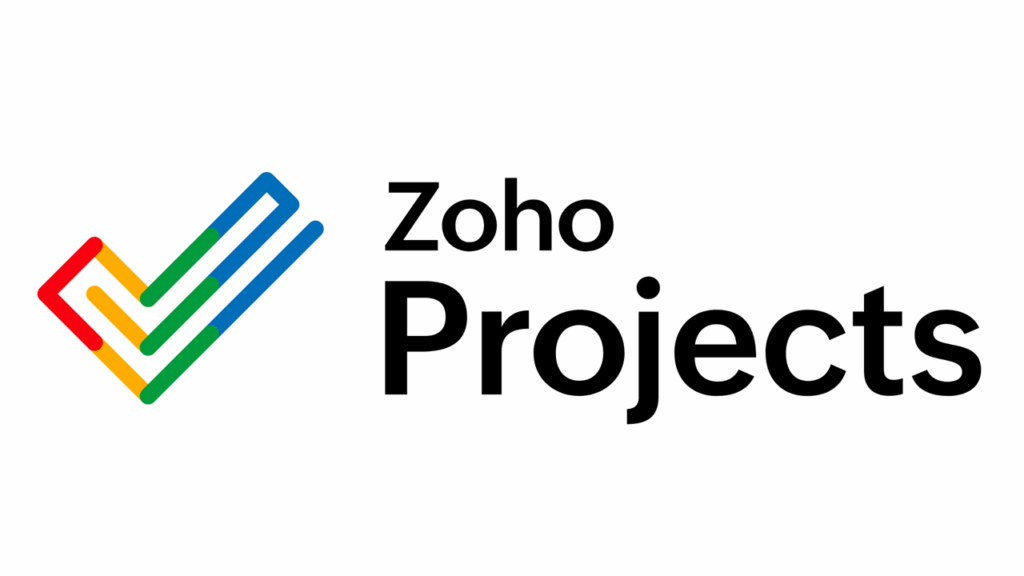
Zoho Projects benefits from integration with the broader Zoho ecosystem, enabling AI capabilities that span project management, CRM, finance, and other business functions. This integration provides comprehensive, context-aware intelligence throughout project lifecycles.
Zia – Intelligent Assistant:
Zoho’s AI assistant, Zia, provides conversational interfaces for project management activities. Team members can ask Zia questions about project status, upcoming deadlines, and task priorities in natural language. Furthermore, Zia proactively notifies users about important events, anomalies, and required actions based on each individual’s role and responsibilities.
Predictive Project Analytics:
Zia analyzes project data to predict completion dates, identify at-risk tasks, and forecast budget consumption. These predictions consider historical performance, current progress rates, and team capacity. Additionally, Zia explains prediction reasoning, helping project managers understand the factors influencing forecasts and identify intervention opportunities.
Automated Task Management:
Zoho employs AI to automatically create tasks from emails, meeting notes, and project communications. The system extracts task descriptions, suggests assignees based on skills and availability, and proposes realistic due dates. Moreover, Zia monitors task progress, automatically sending reminders when tasks risk missing deadlines.
Dependency Intelligence:
Zoho’s AI analyzes project structures to identify both explicit and implicit dependencies between tasks. The system alerts project managers to dependency conflicts that could delay delivery and suggests schedule adjustments to resolve these conflicts. Furthermore, Zia continuously monitors dependencies throughout project execution, providing early warning when predecessor tasks slip.
Cross-Application Intelligence:
Because Zoho integrates project management with CRM, finance, HR, and other functions, Zia provides insights spanning multiple business contexts. For example, when planning projects related to customer opportunities tracked in Zoho CRM, AI can analyze customer history, relationship strength, and strategic importance to prioritize project resources. Similarly, integration with Zoho Books enables AI-powered financial forecasting that considers both project costs and broader financial contexts.
Blueprint Automation
Zoho’s Blueprint feature combined with AI enables sophisticated, context-aware workflow automation. Rather than simple if-then rules, AI-powered Blueprints adapt behavior based on project characteristics, team dynamics, and historical patterns. Therefore, workflows automatically optimize themselves over time based on what proves most effective in practice.
Zoho’s approach demonstrates how AI becomes more powerful when integrated across comprehensive business platforms rather than isolated within individual applications. Project managers benefit from intelligence that considers sales context, financial constraints, resource availability, and strategic priorities simultaneously.
Comparative Analysis of AI Capabilities
Each platform brings unique strengths to AI-powered project management. Organizations should evaluate these capabilities against their specific requirements, existing technology investments, and strategic priorities to select the most appropriate solution.
Summing up
Artificial intelligence is fundamentally transforming project management, offering unprecedented capabilities to plan more accurately, execute more efficiently, and deliver more successfully. Organizations that embrace AI-powered project management gain significant competitive advantages through improved decision-making, reduced risks, optimized resource utilization, and enhanced team productivity. Moreover, as AI technologies continue advancing, the gap between organizations leveraging AI and those relying on traditional approaches will only widen.
The journey to AI-powered project management requires thoughtful planning, appropriate tool selection, and systematic implementation. Success depends not merely on technology deployment but on addressing organizational, cultural, and change management dimensions comprehensively. Furthermore, organizations must recognize that AI augments rather than replaces human project managers—the most powerful approach combines artificial intelligence with human judgment, creativity, and leadership.
The future of project management is undoubtedly AI-powered. Organizations beginning their AI journey today position themselves to benefit from increasingly sophisticated capabilities emerging continuously. Conversely, organizations delaying AI adoption risk falling behind competitors who leverage these powerful technologies to deliver projects faster, more efficiently, and more successfully. Therefore, the question isn’t whether to adopt AI-powered project management but rather how quickly and effectively your organization can embrace this transformative approach.
Frequently Asked Questions
Traditional project management software primarily serves as a repository and organization tool for project information, providing scheduling capabilities, task tracking, and reporting functions. However, these systems are essentially passive—they store and display information that humans input but don’t actively analyze, predict, or recommend actions. In contrast, AI-powered project management systems actively analyze data, identify patterns, generate insights, and provide intelligent recommendations that improve decision-making.
Specifically, AI brings several transformative capabilities beyond traditional software. First, predictive analytics forecast project outcomes based on current progress, historical patterns, and multiple variables, enabling proactive rather than reactive management. Traditional software shows you’re behind schedule; AI predicts you’ll be behind schedule three weeks before it happens and suggests specific interventions. Second, AI automates not just routine data entry but complex decision-making such as optimal resource allocation, risk assessment, and priority determination. Third, AI continuously learns from project outcomes, becoming more accurate and valuable over time, whereas traditional software capabilities remain static unless manually updated.
The cost of AI-powered project management software varies significantly based on platform choice, feature requirements, user counts, and deployment models. Generally, organizations should expect to invest more than basic project management tools but should also anticipate substantially greater value and returns.
Entry-level AI-powered project management platforms typically cost between $10-30 per user per month for basic features. These plans generally include fundamental AI capabilities like intelligent task recommendations, basic predictive analytics, and simple automation. However, more advanced AI features such as comprehensive resource optimization, sophisticated predictive modeling, and natural language processing often require premium plans ranging from $30-75 per user per month.
Why Partner with Solution4Guru for AI-Powered Project Management?
Successfully implementing AI-powered project management requires more than selecting the right platform – it demands expertise in technology deployment, change management, process optimization, and continuous improvement. Solution4Guru brings comprehensive consulting capabilities that accelerate your journey to AI-enabled project management excellence while avoiding costly mistakes and delays.
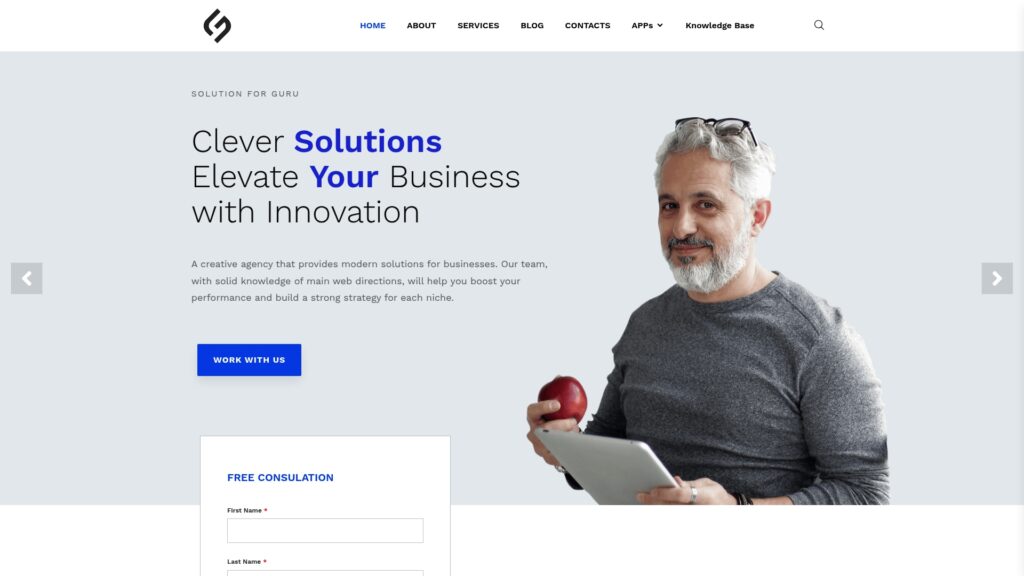
By partnering with Solution4Guru, your organization gains a trusted advisor committed to your AI-powered project management success. Their proven methodologies, hands-on experience, and client-centric approach ensure you realize maximum value from AI investments while minimizing risks, costs, and implementation timelines. Moreover, Solution4Guru’s ongoing support means expert guidance remains available as your needs evolve and your capabilities mature—you’re never alone in your journey toward project management excellence.

